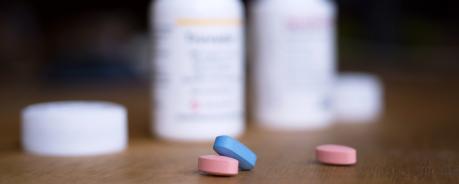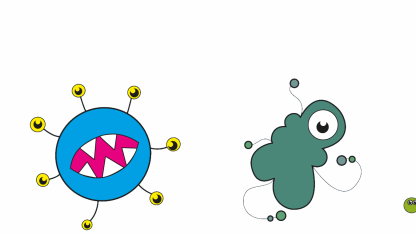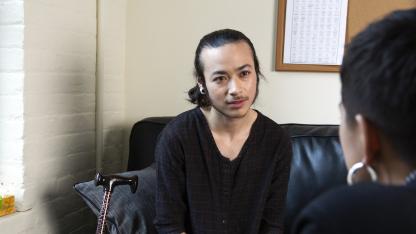
It can happen that something goes wrong during safer sex. For example, condoms can tear or slip off. Also, they are sometimes simply forgotten in the rush of emotions.
If a partner is HIV-positive, HIV can be transmitted. However, panic is out of place in such moments: an HIV infection can still be prevented with a high degree of probability.
For this purpose, HIV medication is taken for four weeks. The medication prevents HIV from taking hold in the body. This treatment is called post-exposure prophylaxis, or PEP for short.
Important: the PEP must be taken as soon as possible after the HIV risk. Preferably within two hours, but it is also possible within 24 hours, and at the latest 48 hours after the event of risk. It is controversial whether the PEP can be taken up to 72 hours (three days) later.
You can find a list of adresses of all clinics that offer the PEP.
When is a PEP useful?
A PEP is usually given if you have had unprotected sex (anal or vaginal) with a partner who
- has a high probability of being HIV-positive
- is HIV-positive and has enough viral copies in his or her blood to be detected (this is not the case when the HIV therapy is working well).
Other situations in which PEP may be reasonable:
- When medical staff has injured themselves with a syringe or other instruments that has previously come into contact with the blood of a patient with HIV.
- When someone injects drugs with a syringe previously used by a person who is HIV-positive.
Whether PEP is appropriate is decided after a consultation in the outpatient clinic or doctor's office.
In the case of sexual accidents, it can be helpful if the partners come along to this discussion in order to provide information about their HIV infection, possible HIV therapy and resistance.
Where can I get the post-exposure prophylaxis (PEP)?
Only specialized hospitals and doctors' practices are familiar with the PEP (an overview of suitable contacts can be found here.) The outpatient clinics mentioned are open around the clock. During the day, the PEP is also available in HIV specialized practices.
In case of doubt, you should choose the practice or outpatient clinic that can be reached most quickly.
If you have any questions, the telephone counseling service of the Aidshilfen in Germany can help.
What are the side effects of the PEP?
The PEP is a four-week course of therapy with HIV medications. Side effects such as headache, diarrhea, nausea and vomiting may occur.
Immediate measures after unprotected sexual intercourse
After unprotected sexual intercourse with an HIV-positive partner, the risk of HIV transmission can be somewhat reduced by the following measures:
- For unprotected anal/vaginal intercourse (high risk): wash penis under running water with soap. To do this, pull back the foreskin and carefully clean the glans and the inside of the foreskin (without exerting pressure on the mucous membrane).
- If seminal fluid enters the mouth (low risk): spit out immediately and rinse briefly with water four to five times.
- If seminal fluid gets into the eye (low risk): rinse with water.
- Important: Do not perform a vaginal or bowel lavage. It could promote the absorption of HIV into the body.
Note: these immediate measures reduce a risk only slightly. They can neither replace the protection by condoms nor - in case of a case - the PEP!
Share on







